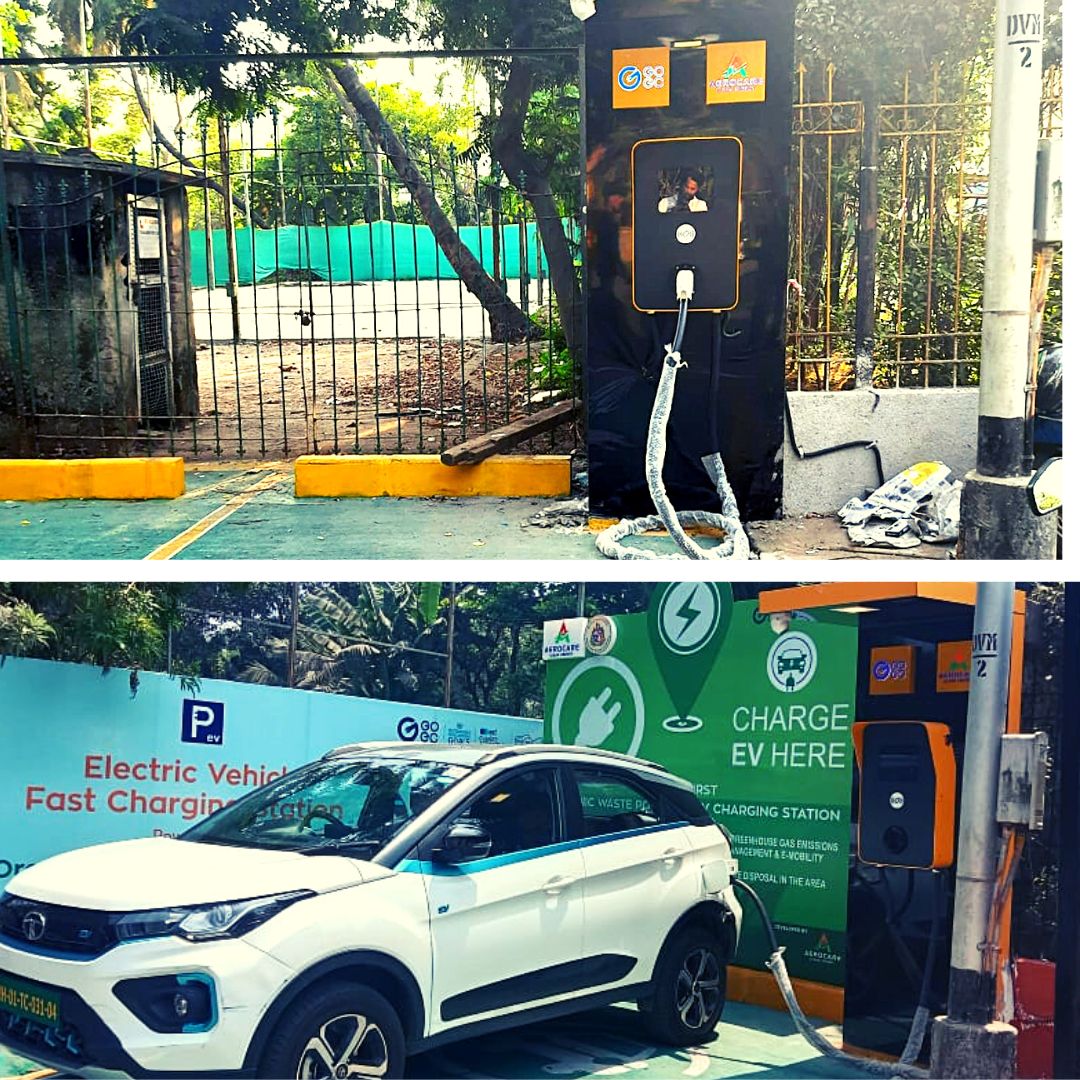
Image Credits: GPS Renewables
From Waste To Energy Source! This EV Charging Station Is Utilising Food Waste For Power Generation
Maharashtra, 29 July 2022 10:09 AM GMT
Editor : Ankita Singh |
A literature lover who likes delving deeper into a wide range of societal issues and expresses her opinions about the same. Keeps looking for best-read recommendations while enjoying her coffee and tea.
Creatives : Tashafi Nazir
For most people, journalism sounds hectic and chaotic. For her, it's a passion she has been chasing for years. With an extensive media background, Tashafi believes in putting efforts on presenting a simple incident in the most interesting way.
Located in Mumbai, the EV charging station is powered by Biogas generated from a Biomethane plant present alongside the charging station. The station generates 220 units of electricity from food waste collected from its nearby areas, mostly from hotels and offices.
Mumbai got India's first organic waste-powered Electric Vehicle charging station in May this year.Located at Haji Ali in Mumbai, the EV charging station is powered by Biogas generated from a Biomethane plant present alongside the charging station.
This first-of-its-kind project has been conceptualised, executed, and commissioned by GPS Renewables-a leading Bio-Energy company, with the support of the Biotechnology Industry Research Assistance Council (BIRAC) and AeroCare Clean Energy.
The first-of-its-kind station generates 220 units of electricity from food waste collected from its nearby areas, mostly from bulk generators like hotels and offices. Restaurants, hotels, motels and small eateries in and around the region discard organic wet waste from their operations which goes in as feedstock into the plant.
This waste is collected and brought to the site by green waste collector trucks appointed by the Municipal Corporation of Greater Mumbai (MCGM). The energy plant will also charge electric vehicles along with powering street lights.
The capacity of the biogas plant is two tons of organic waste per day. To remain operational, it needs between 1 and 2 tons of wet waste daily.
Green Fuel Alternative, Green Model
Speaking to The Logical Indian, Rajesh Ayappassur, Director, Business Development and Partnerships at GPS Renewables, said that in the case of this EV charging station, diesel/petrol is replaced by Biogas, a green fuel alternative. Purified biogas is fed into a Genset designed to use biogas as fuel, which in turn produces current. This renewable power then becomes the input to the EV charging station, which supplies renewable energy to charge the electric vehicles.
"Generation of power using biogas uses the same mechanism that is used in any generator set (Genset), where the burning of fossil fuels produces electricity. Traditionally, diesel or petrol is used to power an electricity generator typically used as a power back up in apartments, societies, offices and institutions," Rajesh said.
While the correlation depends on several constraints and variables, on average and when at 100% capacity utilisation, the plant produces nearly 240 cubic meters of biogas in a given day, that can be used to power eight cars (like Tata Nexon) completely.
Functioning Of EV-Powered Charging Stations
In addition, it can be considered the warp charger of the charging stations. Compared to an average of four hours taken by others, this EV-powered charging station takes up to an efficient 45 minutes to charge a car to 100%.
"The inspiration behind this initiative is the very purpose of GPS Renewables as a company itself. That is, to establish infrastructure which is 100% green (end-to-end), and in turn, drive large scale adoption of sustainable behaviour," Rajesh shared with The Logical Indian.
While the Electric Mobility industry is ushering in a new age of green transportation and its widespread implementation, the source still has a large carbon footprint. The electricity being used to power and charge these electric vehicles is still traditionally sourced ; from burning fossil fuels.
"More than half of India's electricity production today is plain and simple, from coal. Therefore, to make EV an end-to-end green model, GPS decided to commission this prototype of a charging station at Haji Ali. We now plan to replicate this model across EV charging stations in the country, and multiply the green impact being effected by this renewable fuel called biogas," Rajesh shared.
Generating Value Out Of Waste
He added that just one of these BioGas-powered Charging stations is responsible for not only cutting GHG emissions to a large extent but is also instrumental in creating value out of waste so that there is no waste leakage into nature. In addition, it facilitates a circular economy, ensuring no waste leaks into the environment.
Encouraged by the welcome reception, GPS Renewables has focused on strategies to scale this model biogas-powered charging stations across regions and locations.
"For instance, there are already over 100 GPS' BioUrja installed across India and the globe today. BioUrja is GPS' flagship biogas technology which effectively captures energy from organic waste," Rajesh said.
While we plan to install charging points with this existing network of the BioUrjas (based on feasibility), henceforth, GPS will be offering its BioUrja system in combination with the EV charging station. For this, we foresee a tremendous demand," he shared with The Logical Indian in a conversation.
The Brihanmumbai Municipal Corporation (BMC) now plans to set up organic waste-powered EV charging station in each of the 24 administrative wards.
 All section
All section














